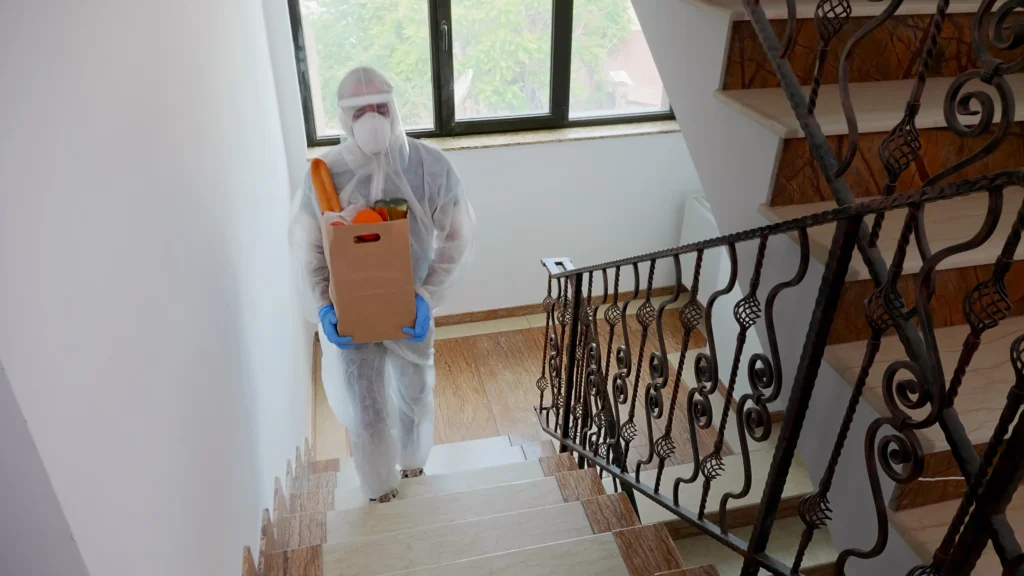Termites are a homeowner’s worst nightmare, capable of causing significant structural damage before you even realize they’re there. Understanding how termites enter your house is the first and most crucial step in protecting your property.
By identifying their common entry points and taking proactive measures, you can create a strong defense against these destructive pests. This blog will walk you through the key areas of vulnerability and provide actionable tips to keep your home safe.

Cracks in the Foundation and Slabs
One of the most common ways termites get into a home is through tiny cracks in the foundation or concrete slabs. Subterranean termites, in particular, live underground and can easily squeeze through fissures as small as a credit card. They then build mud tubes along the cracks to travel from their colony to your home, where they can begin to feed on wood. Knowing how termites enter your house through these unseen cracks is vital for early detection and prevention.
Wood-to-Ground Contact
Any instance of wood directly touching the ground is an open invitation for termites. This includes wooden deck posts, fences, doorframes, and even firewood stacked against the house. Termites can easily travel from the soil directly into the wood, creating a highway for an entire colony to enter your home. Eliminating all wood-to-ground contact is a fundamental strategy for blocking these pests. This is a key part of understanding how termites enter your house and how to prevent it.
Professional Pest Control Services in Sharjah
When it comes to comprehensive termite protection, a professional service is invaluable. Al Atta, a leading provider of pest control services in Sharjah, offers specialized termite control solutions. Our expert team conducts a thorough inspection to identify all potential entry points, including hidden ones.
We use advanced, effective treatments to create a protective barrier around your property, blocking termites from getting in. This includes treating the soil and foundation to stop them at the source. We don’t just eliminate existing infestations; we provide a long-term strategy to prevent future termite problems.
Frequently Asked Questions
Understanding how termites enter your house can bring up many questions. Here are some of the most common ones we encounter:
- Q: What are mud tubes?
- A: Mud tubes are tunnels made of soil and wood that subterranean termites build to protect themselves from predators and dry air as they travel from their underground colony to a food source.
- Q: Can termites chew through concrete?
- A: No, termites cannot chew through solid concrete. However, they can exploit and travel through existing cracks, joints, and expansion gaps in concrete slabs or foundations.
- Q: How do I know if I have a termite infestation?
- A: Signs of termites include mud tubes on walls, hollow-sounding wood, discarded wings near windows, or visible damage to wooden structures.
- Q: Are there other pests that can be mistaken for termites?
- A: Yes, termites are often confused with flying ants. A key difference is that termites have straight antennae, a uniform body, and wings of equal length, while flying ants have bent antennae, a pinched waist, and wings of different lengths.
- Q: Is it okay to use DIY termite sprays from a store?
- A: DIY sprays can be a temporary fix but are not effective for a full infestation. They often only kill the termites they touch, leaving the main colony and queen untouched, which allows the problem to persist.
- Q: What is the best way to prevent termites in my garden?
- A: Keep mulch, wood chips, and other organic materials at least 6 inches away from your home’s foundation. Use treated lumber for garden structures and ensure proper drainage to reduce moisture near the house.
Block Termites with Expert Termite Control Services
Preventing a termite infestation requires both vigilance and a solid plan. By understanding how termites enter your house and taking steps to eliminate their access points, you can significantly reduce your risk. For a guaranteed and long-lasting solution, it’s always best to consult with a professional pest control service.
